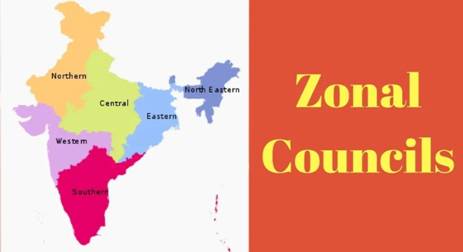Description

Copyright infringement not intended
In News
- The Union Home Minister chaired the North Eastern Council meeting in Guwahati, Assam.
- The meeting was attended by;
- The Minister of Development of North Eastern Region (MDoNER).
- Governors of North Eastern States.
- Chief Ministers of North Eastern States.
- Chief Secretaries of North Eastern Council States, Union Home Secretary, Secretary Inter-State Council Secretariat and other Senior officials of State and Central Ministries and Departments.
- The meeting focused on;
- Vision and Strategy for North Eastern Region as Growth Engine.
- Presentations on 'Priorities & Success Stories'.
- Regional Planning for Telecom, Broadband & Internet Connectivity.
- Empowering the MSME Sector and Self-help Groups (SHGs), Agriculture, Horticulture & Industries.
- Collaboration between NGOs & Private Stakeholders in the field of Education & Healthcare Sector.
- On the occasion, the Home Minister launched the NEHHDC Mobile Application; dedicated to the artisans and weavers of North East India.
North-Eastern Council
- The North-Eastern Council Act of 1971, established a North-Eastern Council in addition to the previous Zonal Councils.
- Assam, Manipur, Mizoram, Arunachal Pradesh, Nagaland, Meghalaya, Tripura, and Sikkim are among its members. Its responsibilities are similar to those of zonal councils, with a few exceptions.
- It is required to examine the actions taken by member states to maintain security and public order in the region regularly.

Zonal Councils
- Zonal Councils aim to promote collaboration and coordination among states, UTs, and the Union.
- They discuss and give recommendations on several topics.
- They are only consultative and deliberative bodies.
- The States Reorganization Act of 1956 established these statutory entities.
- The country is divided into 5 zones by the Act:
- Northern Zone
- Central Zone
- Eastern Zone
- Western Zone
- Southern Zone
- Each zonal council is made up of
- The Union Home Minister (who acts as a chairman).
- CM of all States in Zone + 2 other ministers from the states (Each CM acts as a Vice-Chairman by rotation, holding office for 1 year at a time).
- Administrators of all UTs in the zone.
|
Name
|
Members
|
Headquarters
|
|
Northern Zonal Council
|
Himachal Pradesh,Haryana, Punjab, Rajasthan, Delhi,Chandigarh,
Jammu and Kashmir and Ladakh
|
New Delhi
|
|
Central Zonal Council
|
Uttar Pradesh, Uttarakhand,Chhattisgarh, and Madhya Pradesh
|
Allahabad
|
|
Eastern Zonal Council
|
Bihar, Jharkhand, West Bengal and Odisha
|
Kolkata
|
|
Western Zonal Council
|
Gujarat, Maharashtra, Goa, Dadra and Nagar Haveli and Daman and
Diu
|
Mumbai
|
|
Southern Zonal Council
|
Andhra Pradesh, Telangana,Karnataka, Tamil Nadu, Kerala and
Puducherry
|
Chennai
|
Significance of Council
Significance of Council
- The Councils help in designing a collaborative strategy through discussions and exchange of views between the Union and States on important issues.
- It takes up issues involving the Union and states or between many states.
- The Councils provide a platform for resolving disputes between the Union and the States and among many States.
- The Meetings are used by the Union, States and Union Territories to share their best practices.
- The Councils also discuss a wide range of issues, including;
- Boundary-related disputes
- Security
- Infrastructure-related matters like road, transport, industries, water, and power
- Forests and environment
- Housing
- Education
- Food security
- Tourism
- Transport
https://pib.gov.in/PressReleseDetail.aspx?PRID=1866310
https://t.me/+hJqMV1O0se03Njk9













